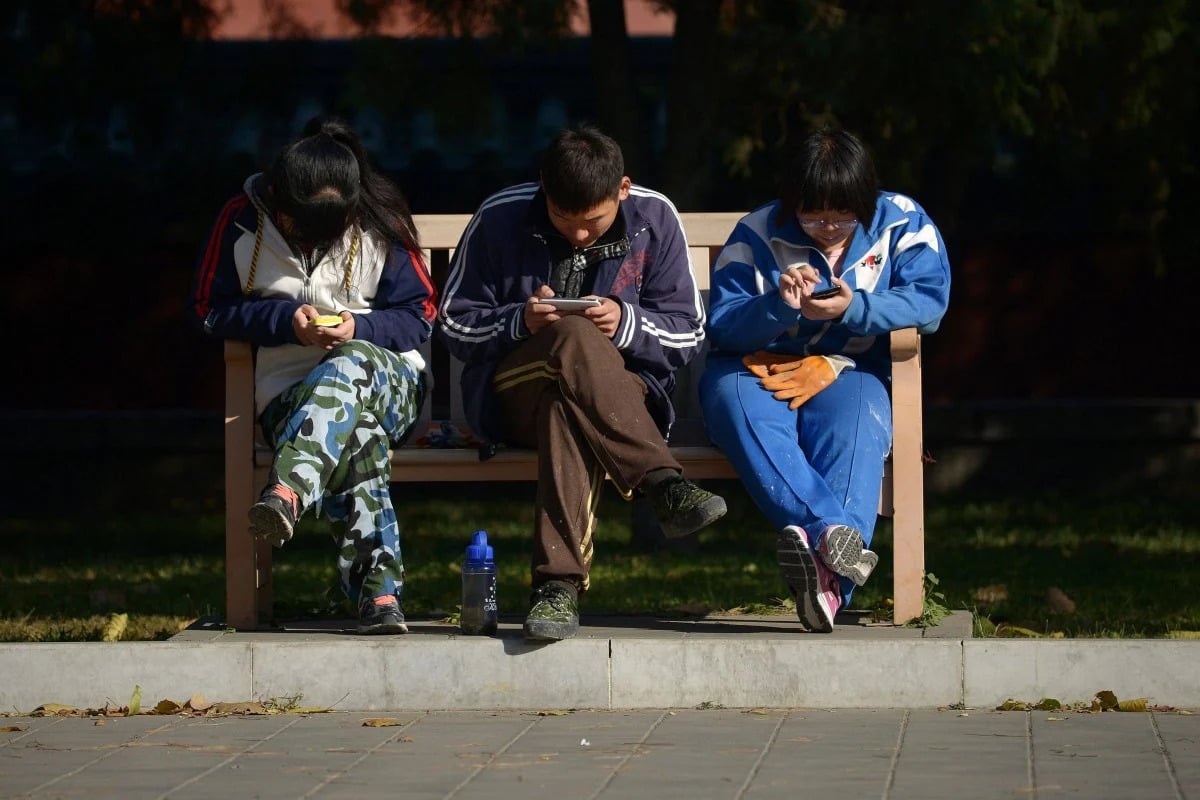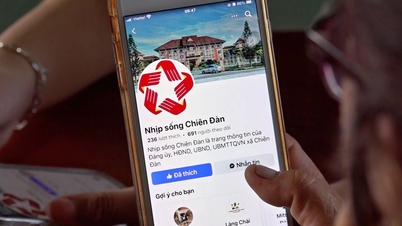(CLO) In China, young people are increasingly using social networks not only to connect with friends but also to hire strangers to chat with.
As real-life relationships become increasingly distant, social media users Xiaohongshu have started using the hashtag "chat companion" to seek out services to chat with strangers.
“Anyone free to chat? I’ll pay any price,” one account recently posted with the hashtag. Within hours, the post received dozens of responses from chat providers.
The hashtag has garnered millions of views in the past few years, reflecting China’s growing willingness to spend money to stave off loneliness, part of a growing trend of “emotional consumption.” As the country’s single population soars, paid dating services have proliferated, from chatting with strangers online to virtual role-playing games.

China's single population is increasingly turning to various forms of paid dating. Photo: AFP
Wang Pan, associate professor of Chinese and Asian studies at the University of New South Wales, said the booming hookup economy was a “response to China’s changing demographics.” According to China’s most recent census, the number of unmarried people aged 20 to 49 reached 134 million in 2020, more than the entire population of Japan.
The number of marriage registrations in China has nearly halved over the past decade, with just 4.75 million couples tying the knot in the first three quarters of this year, a record low, according to data from China's Ministry of Civil Affairs .
That has opened the door to a growing dating industry, from AI-powered chatbots to cosplayers offering face-to-face meetings for a fee.
In recent years, amid huge advances in AI, chatbots with customizable personalities have emerged as an increasingly popular means for young Chinese people looking for digital companions. These chatbots offer more human-like digital interactions than their predecessors.
“Through these digital technologies, children can immerse themselves in their imaginary worlds and enjoy building relationships with these characters,” said Ms. Wang.
Big businesses are not the only ones benefiting from the lonely hearts of Chinese people, as individuals who provide paid companionship services also profit.
Li Shuying, an 18-year-old student, recently posted an ad on Xiaohongshu saying she was willing to take part in such chats. “I just want to make money,” she said. “I think this is the easiest and least troublesome job.”
On Xiaohongshu, users offering companionship services typically charge between 8 yuan and more than 50 yuan (about 28,000 to 175,000 VND) for a 30-minute conversation. Li, with time on his hands, has positioned himself at the lower end of the market.
Li’s clients are mostly men, with the occasional teenage girl wanting to vent about her classmates. Li says many of her clients have romantic overtones, but some simply want friendly company.
For Ms. Wang, the popularity of chatting with strangers reflects a growing disconnect in Chinese society.
“Relationships have become more diverse, more flexible and increasingly commercial,” she said. As such, she predicts that the companion economy is likely to continue to thrive in China in the future, especially if marriage rates continue to decline.
“This is an opportunity for businesses to capitalize on the need for companionship among singles and those who feel lonely,” she said. “There will be more products and services developed to meet the needs of this new demographic.”
Hoai Phuong (according to SCMP)
Source: https://www.congluan.vn/gioi-tre-trung-quoc-chi-tien-de-duoc-tro-chuyen-tren-mang-xa-hoi-post321740.html




![[Photo] Binh Trieu 1 Bridge has been completed, raised by 1.1m, and will open to traffic at the end of November.](https://vphoto.vietnam.vn/thumb/1200x675/vietnam/resource/IMAGE/2025/10/2/a6549e2a3b5848a1ba76a1ded6141fae)
































































































Comment (0)